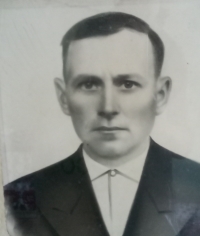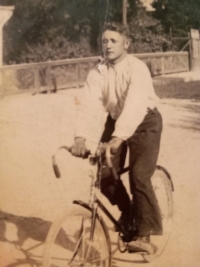I only remember my father being in hospitals
Nadija Andrijivna Rudnycka was born June 1, 1948 in Mylcha village in the Rivne Oblast in Soviet Ukraine. During the Nazi occupation, her father Andrij Fijanovič Dobrovolskyj was a forced laborer deployed in Nazi Germany who was later imprisoned in the Sudobychi village. In 1957 he died of the aftereffects of the forced labor and imprisonment. The witness is a so-called War Child, which is a label in Ukraine for people whose parents died because of the war. Nadija Andrijivna is invalid from birth and currently lives in the city of Dubno in Western Ukraine.


